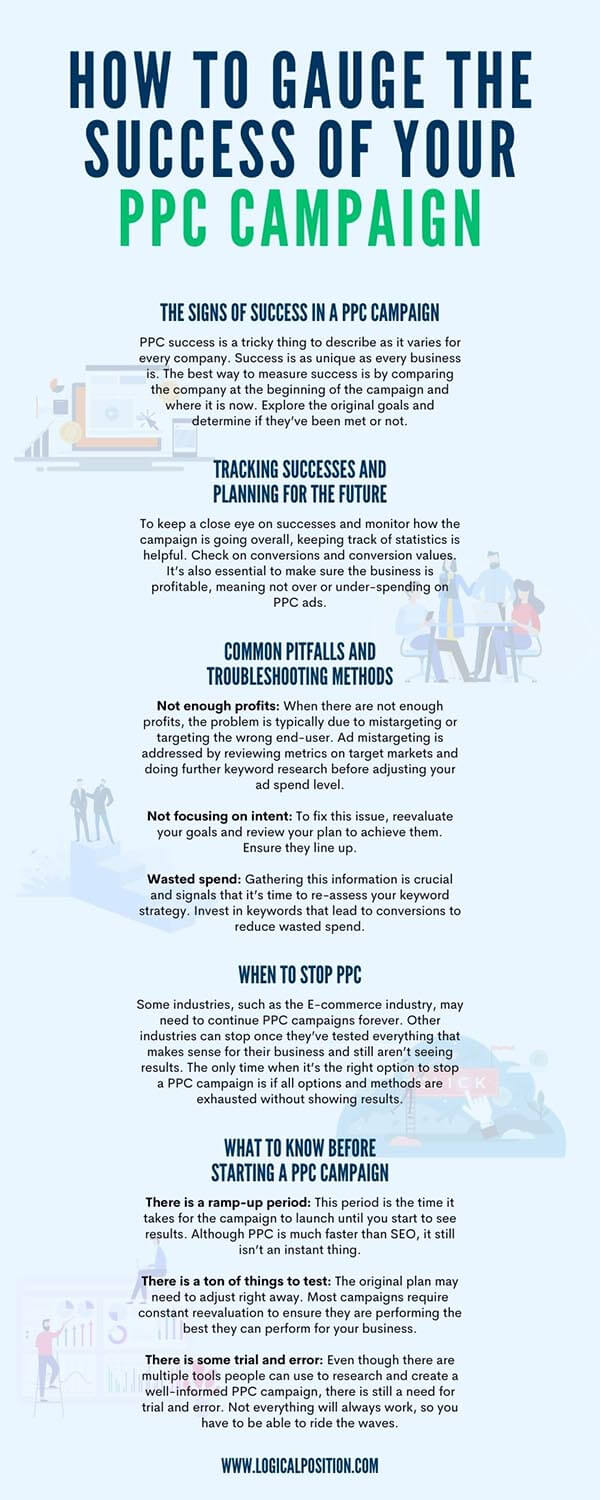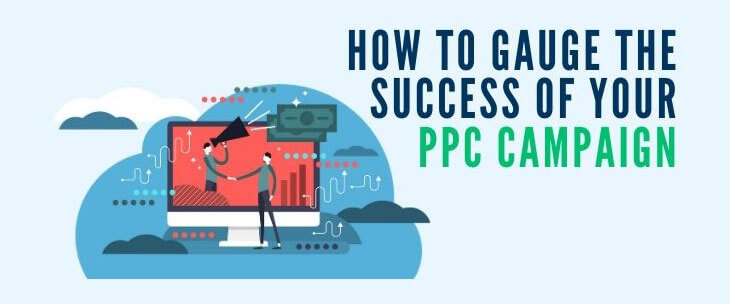There are many benefits to an investment in digital marketing. The world is more digital-based now than ever before. More industries than ever are feeling a push to move online and optimize for digital users. PPC is one of the most effective digital marketing strategies for companies to invest in. When companies employ PPC campaigns, one of the biggest questions is how to know it’s working.
Professional PPC management companies know that how to gauge the success of your PPC campaign varies based on goals. Goal setting is one of the essential things for PPC in any industry. Pay per click advertising is when companies pay for their ads to appear for specific keyword search terms in search engines. The company pays each time a web surfer clicks on the advertisement, leading them back to the company’s website. Different search terms cost varying amounts, so there are truly endless possibilities for companies investing in PPC on just about any budget.
Why Businesses Invest in PPC
Businesses invest in PPC campaigns for many reasons. Each company tends to have different goals in mind, so understanding how a PPC campaign works and developing a unique strategy is critical. Below are a few of the main reasons people decide to invest in a PPC campaign.
Desire to increase profits: The desire to increase profits is popular reason companies get into PPC campaigns. PPC is an investment tool. The money you put into a PPC campaign leads to more people on the website, which often leads to more conversions. In turn, this creates more profits.
Increasing brand awareness: Brand awareness is a huge deal to consumers. When customers connect with and relate to a brand, they are more likely to develop brand loyalty. All of this starts with brand awareness. PPC helps companies get exposure and get their names out there.
Getting people to the website: Getting people to visit your website is crucial to creating conversions, especially for businesses that are new to the online landscape. Increasing the impressions and getting more people to find your website increases your chances of additional sales.
The Signs of Success in a PPC Campaign
During a PPC campaign, business owners want to know how to gauge the success of their PPC campaign and be sure their efforts are paying off. PPC campaigns are investments, after all. PPC success is a tricky thing to describe as it varies for every company. Success is as unique as every business is. The best way to measure success is by comparing the company at the beginning of the campaign and where it is now. Explore the original goals and determine if they’ve been met or not. Paying attention to key performance indicators is how a company can explore its goals.
For example, if a company’s goal was to make more money and it does so through the conversions found via PPC ads, its campaign is a success. Suppose a company was looking for more exposure. In that case, the right way to measure success is by analyzing the number of ad clicks. Suppose the company wanted to get more people to the website. In that case, it’s essential to compare the website metrics before the PPC campaign and where it is now.
Tracking Successes and Planning for the Future
Tracking successes of PPC ads varies depending on company goals and existing achievements. To keep a close eye on successes and monitor how the campaign is going overall, keeping track of statistics is helpful. Check on conversions and conversion values. It’s also essential to make sure the business is profitable, meaning not over or under-spending on PPC ads. Analyze the amount of money spent compared to the amount of money earned.
Focusing on the lifetime value of a customer is another critical metric to monitor. PPC is not just about the direct impact, but the long-term value and longevity of a business.
Common Pitfalls and Troubleshooting Methods
While uncommon when working with a professional PPC management company, some businesses find their PPC campaigns lack the expected successes. Below are some of the common areas to explore and how to solve the issues associated.
Not enough profits: This is one of the most glaring issues companies can identify in their underperforming PPC campaigns. When there are not enough profits, the problem is typically due to mistargeting or targeting the wrong end-user. Ad mistargeting is addressed by reviewing metrics on target markets and doing further keyword research before adjusting your ad spend level.
Not focusing on intent: Not focusing on the intent of the campaign can be detrimental to it. To fix this issue, reevaluate your goals and review your plan to achieve them. Ensure they line up.
Wasted spend: Wasted ad spend is money spent on keywords that are not leading to conversions but are getting clicks. Gathering this information is crucial and signals that it’s time to re-assess your keyword strategy. Invest in keywords that lead to conversions to reduce wasted spend.
When To Stop PPC
When to stop PPC is a case-by-case basis. Some industries, such as the E-commerce industry, may need to continue PPC campaigns forever. Other industries can stop once they’ve tested everything that makes sense for their business and still aren’t seeing results. The only time when it’s the right option to stop a PPC campaign is if all options and methods are exhausted without showing results.
If PPC is working for your business, never stop. Learn, reevaluate, and grow your campaign to help your company reach new heights.
What To Know Before Starting a PPC Campaign
If you’re thinking about starting a PPC campaign for your company, keep a few crucial details in mind. Every PPC campaign is unique, so it can be hard to predict how yours will look. Consider these things before contacting a PPC management company.
There is a ramp-up period: This period is the time it takes for the campaign to launch until you start to see results. Although PPC is much faster than SEO, it still isn’t an instant thing. Patience is required.
There is a ton of things to test: PPC is an experience that requires a willingness to learn and adjust. The original plan may need to adjust right away. Most campaigns require constant reevaluation to ensure they are performing the best they can perform for your business. Adaptability is a must.
There is some trial and error: Even though there are multiple tools available within the Google Ads platform that enable companies to research and create a well-informed PPC campaign, there is still a need for trial and error. Not everything will always work, so you have to be able to ride the waves.

What To Expect When Starting a PPC Campaign
When you decide to start a PPC campaign, it’s essential to go into the campaign as a partner working to better your business. Hiring a professional PPC campaign management company is the key to success in a digital landscape. They will help you set realistic and optimistic goals for your company and work with you and a team of experts to create a plan to achieve those goals in a timely fashion. Go into PPC campaigns with a collaborative sprint, and you’ll be sure to succeed. There is no “one size fits all” method for PPC. You have to work only with a digital marketing company that you trust and that readily communicates with you.
There are so many good reasons to begin a PPC campaign. PPC truly helps to unlock the potential that so many businesses hold. It aids in reaching audiences who are likely conversions and gets more people to a company’s website. Setting goals and working toward them through extensive research and consistent attempts to improve is the best way to see results. Another great way to start seeing positive results efficiently and reliably is by partnering with a digital marketing company that will develop a solidified PPC strategy explicitly tailored to your business. No two businesses are the same, so no two PPC strategies should look the same, either. Discover what a comprehensive PPC campaign can do for your company by contacting Logical Position today. At Logical Position, we work to maximize your use of PPC dollars. Transparency is a principal value at Logical Position. We designed a client dashboard to showcase all the information other agencies keep hidden away, so you’re always informed about your PPC campaign and metrics. Contact us today for a free Adwords review or a free consultation!




